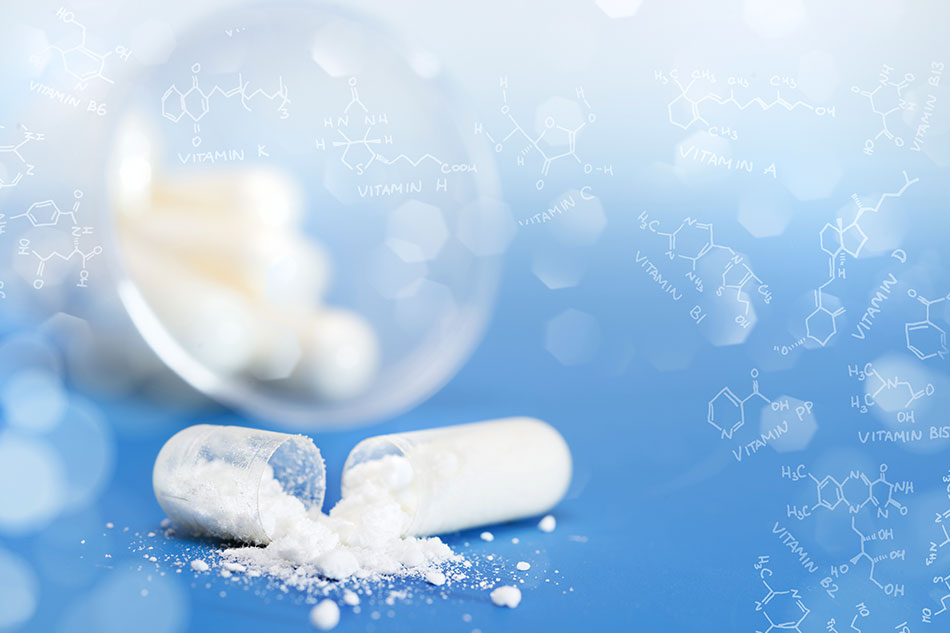 Supplements That Can Help Depression
Supplements That Can Help Depression
The link between supplements and psychiatric disorders is not a surprising one as previous research has documented a relationship between poor diet and mental health. The importance of diet for maintaining physical health is widely accepted due to the clear impact of dietary risk factors on cardiometabolic diseases, cancer and premature mortality. By comparison, the potential impact of diet on mental wellness is becoming increasingly acknowledged.
To complement and round out dietary nutrients, people take nutritional supplements. In the U.S., 52% of adults take supplements in some form; half with psychiatric disorders and half of those for major depression. In fact, depression has been identified as one of the most frequent predictors of complementary and alternative medicine use.
For the past decade, there has been an increased academic and clinical interest in the role of nutritional supplements in the treatment of depression. The growth of research is partly attributable to the evolving understanding of the neurobiological underpinnings of depressive disorders which implicates certain nutrients as a potential adjunctive treatment.
One of the most common reasons people cite for taking supplements is to avoid or mitigate the side-effects of medication. Drugs used to treat depression can cause unpleasant side effects that discourage patients from taking them. In recent years, there has been increased interest in natural substances to treat the symptoms of depression, either to enhance the effects of prescription drugs or to use alone.
Studies show that a lack of certain nutrients may contribute to the development of mental disorders. Notably, nutrients such as essential vitamins, minerals and omega-3 fatty acids are often deficient in people suffering from depression.
Nutrients That Help Depression
Nutritional therapy has evolved over the years into a scientific and comprehensive healthcare system that can prevent and restore balance when illness occurs. Chronic long term conditions, such as major depression, that have not responded to conventional treatment can be the result of underlying biochemical imbalances that respond well to nutritional therapy.
For the past decade, research into the effects of nutrients on depression had exploded. Investigators have identified what they deem to be the twelve most important antidepressant nutrients. These include folate, iron, long-chain omega-3 fatty acids, magnesium, potassium, selenium, thiamine, zinc, and vitamins A, C, B6, and B12. Of course, there are other nutrients that are also beneficial in treating depression.
For some people with depression, environmental factors and nutritional deficiencies are so serious that dietary adjustments alone may be insufficient. In these instances, high doses of vitamins and minerals—well above the accepted recommended daily levels—may be needed. In order to determine appropriate dosages, a health care practitioner will order the appropriate tests and carefully monitor progress. The following represents nutritional supplements that have been found useful in helping with depression.
References
Bjelland I, Tell GS, Vollset SE, Refsum H, Ueland PM. (2003). Folate, vitamin B12, homocysteine, and the MTHFR 677C->T polymorphism in anxiety and depression: the Hordaland Homocysteine Study. Archives of general psychiatry, 60, 618–626.
Carroll D, Ring C, Suter M, Willemsen G. (2000). The effects of an oral multivitamin combination with calcium, magnesium, and zinc on psychological well-being in healthy young male volunteers: a double-blind placebo-controlled trial. Psychopharmacology (Berl), 150, 220–225.
Frangou S, Lewis M, McCrone P. (2006). Efficacy of ethyl-eicosapentaenoic acid in bipolar depression: randomised double-blind placebo-controlled study. Br J Psychiatry, 188, 46–50.
Fredricks, Randi. (2008). Healing & wholeness: Complementary and alternative therapies for mental health. Bloomington, IN: Author House.
Friedel HA, Goa KL, Benfield P. (1989). S-Adenosyl-l-methionine: A review of its pharmacological properties and therapeutic potential in liver dysfunction and affective disorders in relation to its physiological role in cell metabolism. Drugs,38, 389–417.
Galizia I, Oldani L, Macritchie K, Amari E, Dougall D, Jones TN, et al. (2016). S-adenosyl methionine (SAMe) for depression in adults. Cochrane Database Syst Rev, 10, CD011286.
Gao Q, Kou T, Zhuang B, Ren Y, Dong X, Wang Q. (2018). The Association between Vitamin D Deficiency and Sleep Disorders: A Systematic Review and Meta-Analysis. Nutrients, 10(10), 1395.

About This Excerpt
The above excerpt is reprinted from Dr. Randi Fredricks’ book Complementary and Alternative Treatments for Depression. No part of this article may be reproduced in any form or by any electronic or mechanical means, including information storage and retrieval systems.
Disclaimer: This article is not intended to provide medical advice, diagnosis or treatment. Views expressed here do not necessarily reflect those of Dr. Randi Fredricks as articles often present the published results of the research of other professionals. Copyright © 2020.